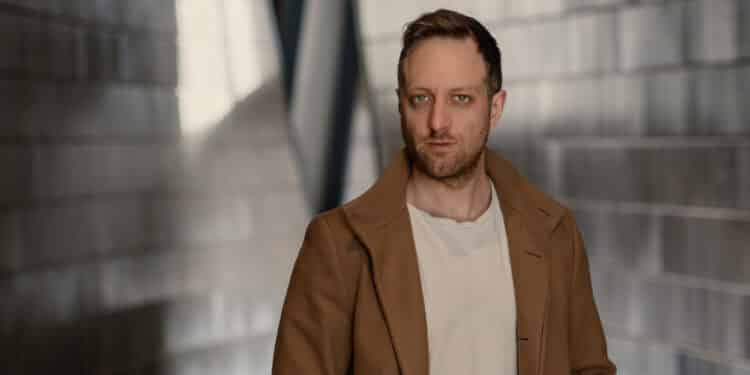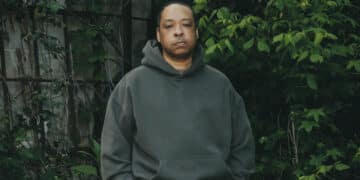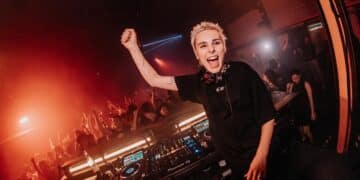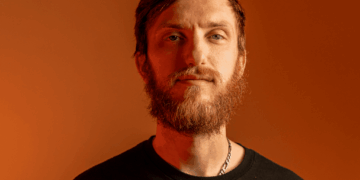AKKI champions inclusivity and promotes sober parties while crafting dance music that celebrates cultural diversity.
I first heard AKKI when she was supporting Claude VonStroke at SILO in Brooklyn, and I knew I needed to follow this musical talent. Her set was infectious, and her sound left me wanting more, even as the headliner took to the decks.
The following morning, I looked her up and put on one of her SoundCloud shows in the background as I learned more. AKKI (real name Akshatha Ramakrishnan) is Brooklyn-based, Australian-Indian-Singaporean DJ and producer who never seems to sleep. As I sat across the table from her talking about her music career, each response she gave prompted so many follow-up questions.
I came to AKKI through her sound, but I’m sticking around for all the things she represents. She’s multicultural, and her music showcases not only her roots, but also sounds from around the globe. She’s sober in a space that rarely is, and doesn’t preach sobriety as the answer, but merely suggests it as an option. And she’s a fierce supporter of underrepresented groups, especially women and gender non-confrming persons. On top of all this, she’s a warm, caring human who was absolutely delightful to connect with for our interview.
AKKI isn’t really new to the scene, but she’s changed course a number of times and only recently seems to have found her focus on music production. She’s been in dance music for over a decade, the early years of which were spend throwing parties and performing, while production has only recently become her true calling. Considering what she has accomplished already, we’re really looking forward to seeing and hearing what she does in the coming years!
Check out her guest mix here and read on below for the full interview!
Stream EDMID Guest Mix 423 || AKKI on SoundCloud:
Hey, AKKI! Thanks for taking the time to chat with us today. The moment I saw you at SILO in support of Claude VonStroke, I knew I’d found something special. Tell us a little about your path to dance music and the style you produce and perform.
I have been interested in music and production since childhood, but I wasn’t really interested in dance music until about 15 years ago. My path to music went from hip-hop into Latin Caribbean dance, then Middle Eastern, then disco, before finally arriving at deep house, and ’90s UK music. Eventually, this led me to house music, tech house, and acid.
I’ve always been interested in music you could dance to, and that guided my journey. I was always a singer-songwriter, writing songs in the bathroom [laughs] and putting random instruments to it. I was also involved in dance choreography in high school, and then a Latin dance team in college.
Then, what stood out for me in dance music was not just the music itself, but the community. Going out to the clubs in Manhattan, there was always this feeling of exclusivity with very specific looks, guy-to-girl ratios, having to act a certain way, and even having the right contacts to get in somewhere and dance. I found this really stifling while the dance music culture in general wasn’t like this at all. It has nothing to do with how you look; in fact, the weirder the better. That really drew me into the culture and the love of the music followed. It’s about community first.
Your diverse background underpins so much of what you do. And even with that diversity, you seem to look even further, such as your involvement in Latin-Carribean music while attending Columbia University. What does this diversity mean to you and how does it influence your art?
My parents grew up in India and then they migrated to Australia; I grew up there. And despite my growing up in Australia and later in Singapore, my mom was very keen on making sure that I embraced my cultural roots. So she exposed me to Indian dance music and singing, as well as to classical music. So I had this well-rounded exposure to Western and Indian dance music. This broadened my perspective regarding different kinds of music and culture.
One thing missing in Singapore was Latin-Caribbean culture, so when I got here I immediately auditioned for all kinds of dance teams, but the Latin-Caribbean was the best fit. I liked that this style is about interaction, dancing as a community, and dancing as a team. What they really liked about me is that I brought this new perspective from my Indian culture. This is how I got so interested in mixing different interests together. I try to take the best of different worlds and mix them into something really unique and special. Gradually, I learned that dancing wasn’t my calling, but the composition of the music was, along with performing and bringing people together on the dancefloor.
This is so interesting to me because I raved in the ’90s, took a pause, and returned in the 2010s. In the ’90s, for me at least, it was very much acid house and UK driven. When I returned, I dove right into mainstream EDM. But then the Brooklyn clubs exposed me to tribal, jungle, and moombahton, and more world music. That’s when I found my calling.
I think it has everything to do with rhythm. Growing up, I learned Indian music and dance, which is all about rhythm, and Latin music is the same. This is all music that you can move to no matter what, whether slow or fast. There are always interesting drum patterns and percussion that you can integrate into so many different cultures. And that’s what I gravitate towards. When I pick out my DJ set and when I produce, I’m looking for that groove that brings together a diversity of rhythms. I think people really enjoy that.
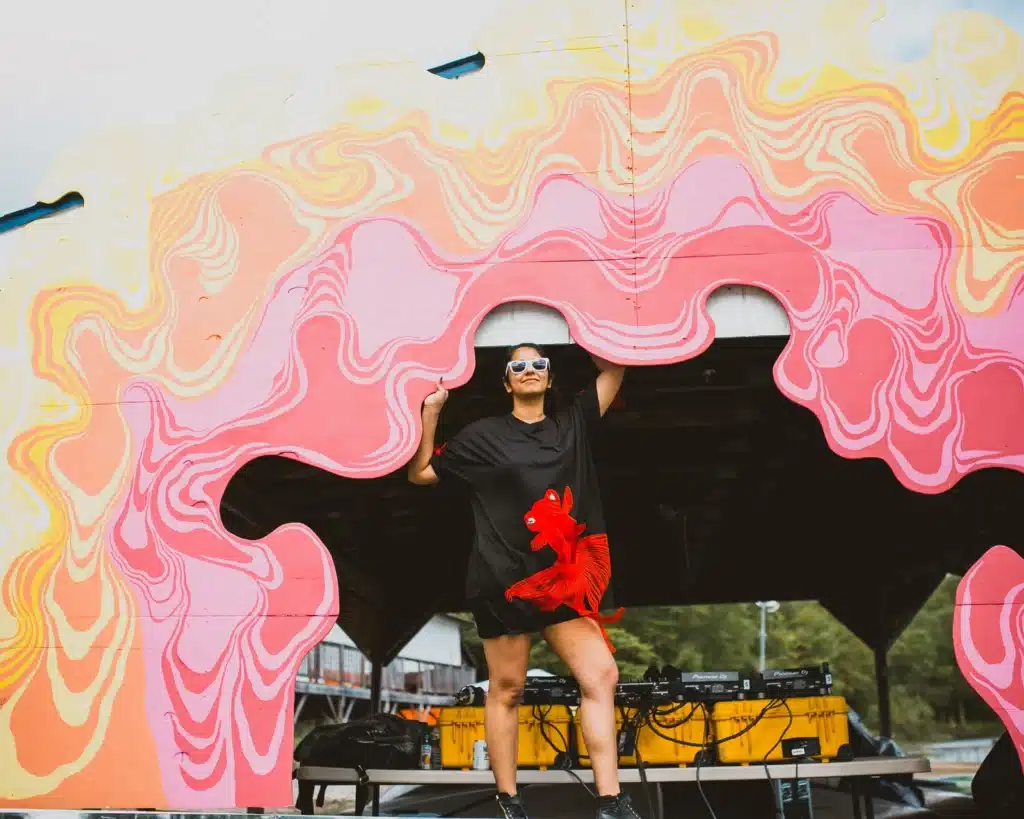
On top of your far-flung cultural influences, you are also very proud of your sobriety in a scene often known for its excess. Why is this important to you and how are you spreading the message? Tell us about mixer2mixer!
There was a turning point for me that showcased how the drinking culture, or indulging in anything else, was just not sustainable. I was trying to balance my day job, my social life, music production, and showing up to perform my best sets at night. And these things were in conflict with that culture of excess, as you noted. I couldn’t stay out late, then nurse a hangover, and then get anything useful done.
Drinking simply didn’t contribute anything positive to my life and lifestyle anymore. I pass no judgment on others who embrace drinking, this is simply about what worked well for me. Not drinking feels like a good hack for me and it allows me to feel as though I can have it all.
Like, last Friday I went to Solomun by myself, and I was dancing by myself, no alcohol, no drugs, with people around me probably doing both. And I was just having the time of my life! The next day wasn’t spent hungover. It was spent listening to all the videos I took, seeking inspiration for things to put into my production. Taking drinking out of the equation has allowed me to go out for fun while getting to do solid research for my passion. I’m able to take in how the crowd reacts to what the DJ is doing and I can remember all these observations. Then, I can actually put them into practice in my work the next day.
mixer2mixer is a really interesting project I’m doing with my friends Sam and James. Sam runs an organization called Third Place Bar, and she does a lot of non-alcoholic pop-ups, events, mocktail tastings, and workshops.
We came up with this idea where she could teach me how to make mocktails and I could teach her how to DJ. Then we said, “we should livestream this!” We’ve only shot a few episodes and posted one so far, but we’ve got others ready to go and we want this to continue. We’re not preaching sobriety, but giving a view of what it can be like. It’s meant to inspire and reach anyone who might be facing a similar challenge.
I’m 53 and constantly have people half my age on the dancefloor asking, “How do you outlast me every night?” And I tell them, “Because I don’t drink all night! No shame if that’s your thing, but alcohol will slow you down, so it’s simply about making a choice.”
It really makes you think about your “why.” Back in the day, I’d enjoy getting drunk because it was about the destination and not about the music or community. But now it’s more about having an intentional experience. It’s about hearing music that I might learn something from, choosing a new experience, or simply being very intentional with the people I want to hang out with, and who share mutual values. Being in their company is just so much more fulfilling for me.
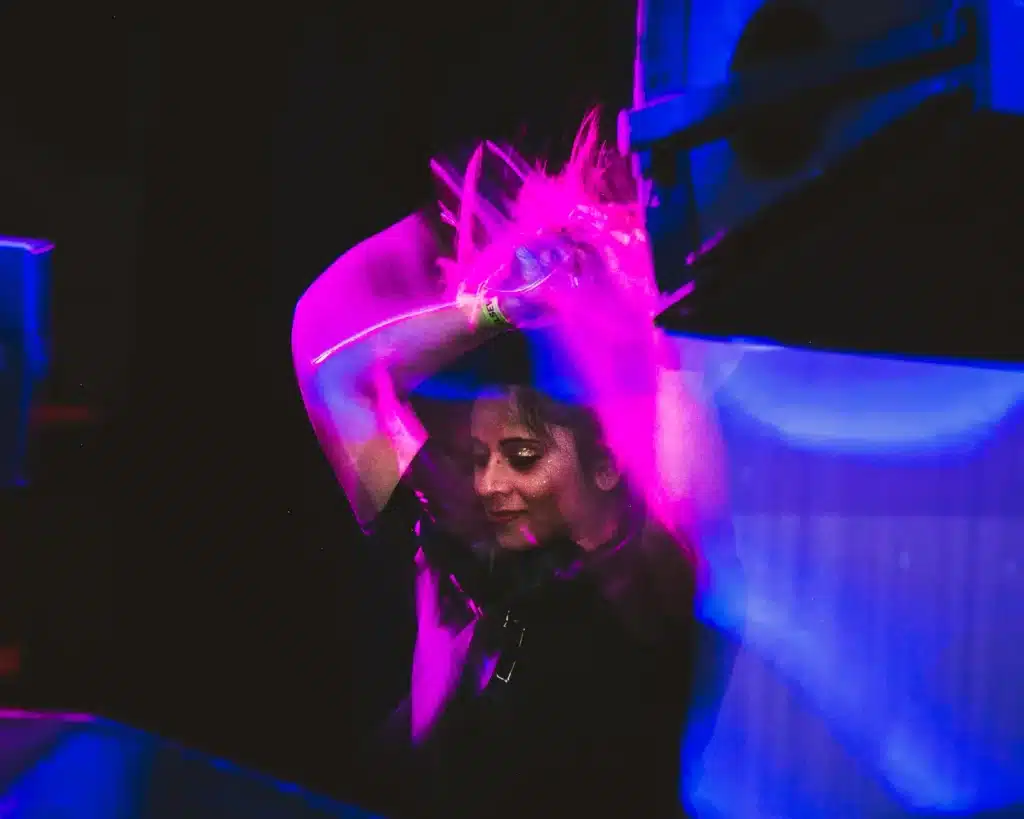
You also consider yourself an activist and go out of your way to support underrepresented categories such as LGBTQ+, BIPOC, AAPI, and female/GNC causes. What are some of the things you do to support this?
When I first came onto the scene in about 2014, I immediately realized there weren’t many women. And I’d hear men speaking of female producers, saying that their work was probably written by someone else, and simply undermining all the work these women put in.
I realized that women needed more representation. I started throwing events called Women Of Deep House, and I’d only book women. The name feels kind of cheesy now, but it made a point. I also had this series called Midnight Snack where I would only have female guests. This included a guest mix and an interview that we posted on SoundCloud. It was centered around, “What is your midnight snack?” because we were always up burning the midnight oil trying to get ahead.
Now, I’ve been seeking more simple hacks to get producers and promoters to listen to more women. I have a Friday Five playlist that features women and non-binary producers releasing the best new music. I also try to feature LGBTQ+ and artists of color because this is really about any underrepresented group. I think that people need actionable ways to support underrepresented groups. And giving them a playlist puts this in their hands. I’m also very intentional about including this same music in my sets. So when the audience is Shazaming my set, they also discover these artists.
It seems that with live performances, your radio shows, and activism, you are already quite busy! Where do you find the time to produce and how important is production to your overall artist persona?
It’s so funny that you asked this, because I started this journey more interested in production and then it took a bit of a backseat. But now it’s coming to the forefront again, and when I think about balancing my music endeavors with my day job, production has been number one again.
I realized that there are two key factors in exponential growth: community and your own music. And there’s a third in having a very powerful brand, but I think that’s integrated with community. I’ve really built a strong community, but I need my music to spread my message and really help people understand who I am, and my unique background.
I try to produce every day, even if only a little bit. I follow Atomic Habits, which is a great book I recommend if you are trying to juggle many things. If I’m able just to put in an hour or two, that feels like a win, and it creates a domino effect. I’ll set clear goals like producing a track a month. And it’s just being patient with yourself because the overall process is daunting, but small wins can get you there. You just have to keep putting in the work.
What’s in store for AKKI in 2024? Any specific releases or shows that excite you?
Yeah, I’ve got some interesting shows coming up starting with supporting Galantis at Brooklyn Mirage later this month. Then Femme House is doing a showcase in Times Square on August 27. So I’m really excited for those shows.
I also have a bunch of releases that I’m shopping around right now. I’m just trying to enjoy the fruits of my labor, and getting these tracks out there for people to listen to. I’m also considering getting back into throwing events and throwing early events. There’s an organization called Matinee that caters to a niche audience wanting to go out early, likely not drinking, and wanting to be in bed by midnight. This is really interesting to me.
What’s your favorite pre- or post-event ritual for a night out?
I used to enjoy going to the nearest Halal food truck. But now, I like to go home and get into my practice of meditating and breathing, as nerdy as that sounds. [Laughs] As someone who doesn’t drink and deals with a level of anxiety from a night out, I need to take a moment to recharge and be grateful for the opportunities that I have.
Follow AKKI:
Website | Facebook | X | Instagram | SoundCloud



